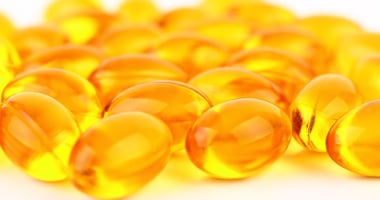Nutritional supplements and/or a special kind of therapy focused on improving dietary behaviors do...
Using Omega-3 Fatty Acids as Add-On Therapy Might Benefit Patients With MDD
 |
A meta-analysis published in Translational Psychiatry, however, suggests that omega-3 fatty acids can help improve the symptoms of major depressive disorder (MDD) in certain cases—notably in instances when patients have a confirmed MDD diagnosis and are taking antidepressants.
The analysis combined 13 placebo-controlled studies carried out between 2002 and 2015 that included 1,233 participants; in an effort to create a more discrete population sample, only studies with adult patients who had primary depression assessed using clinical interviews and DSM criteria for MDD were included. Studies of people with perinatal, perimenopausal, or MDD associated with another neuropsychiatric disorder were excluded.
After combining these studies, the authors found that omega-3 supplementation did result in a statistically significant improvement of depressive symptoms compared with placebo. (Most of the studies used the Hamilton Rating Scale for Depression to measure the changes.)
When looking at potential contributing factors, the authors found that studies using higher doses of eicosapentaenoic acid (EPA, with study doses ranging from 0-4400 mg/daily) or using omega-3s as add-ons to antidepressant therapy had stronger results. The levels of docosahexaenoic acid (DHA, 0-2200 mg/daily) had no bearing on outcomes, nor did the EPA/DHA ratio.
"This is a balanced analysis that has incorporated several recent studies that have been more rigorous in diagnosing the enrollees," said David Mischoulon, M.D., Ph.D., an associate professor of psychiatry at Massachusetts General Hospital and a co-author on two of the studies incorporated in this analysis.
"The findings are in agreement with other work suggesting that the anti-inflammatory properties of EPA might be a contributing factor. More work uncovering the mechanisms of how EPA and antidepressants might interact would be worthwhile," he continued.
To read more about how food intake and nutrition can be important in psychiatry, see the Psychiatric News article “Food May Be a Tool to Consider When Helping Psychiatric Patients.”
(shutterstock/stevemart)





